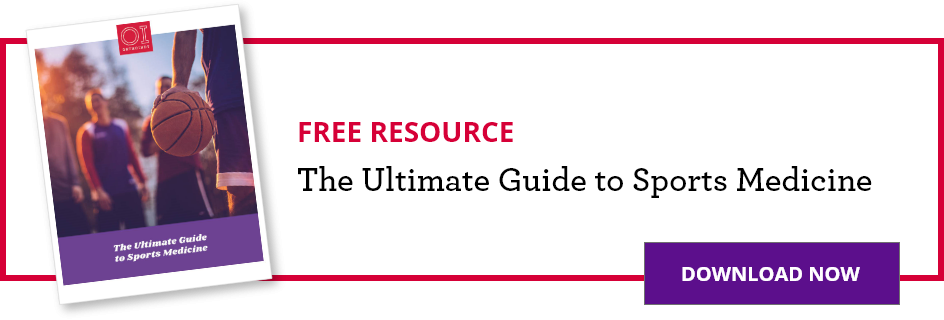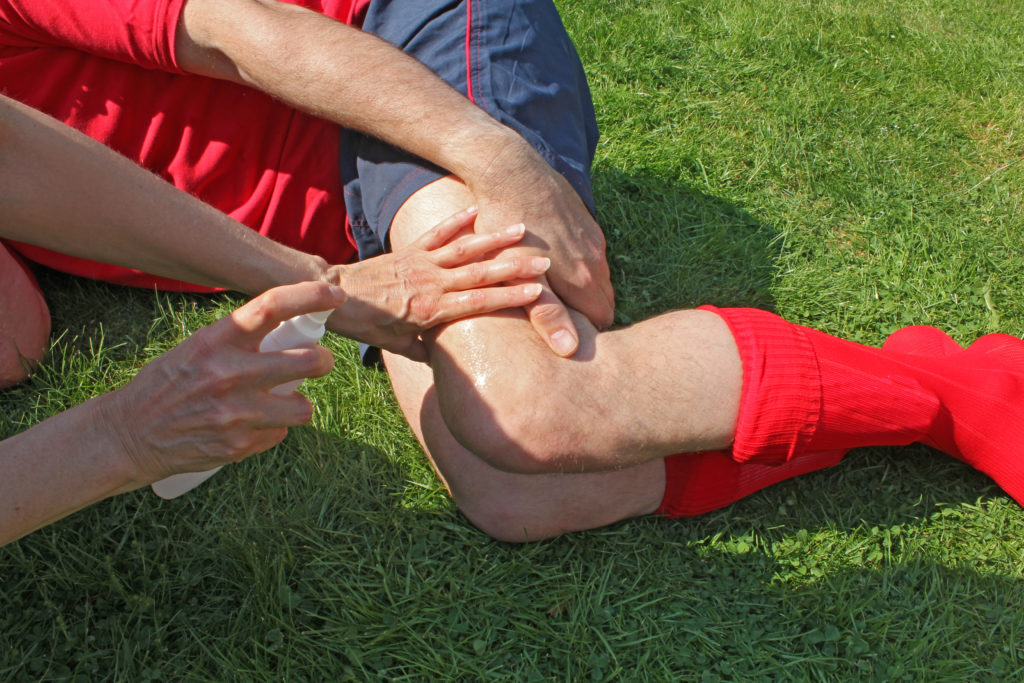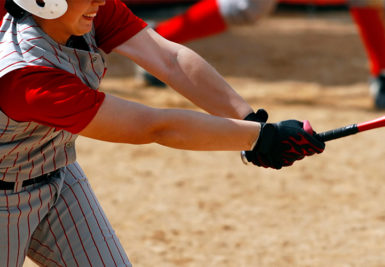This post is part of The Ultimate Guide to Sports Medicine
The ligaments in your knee connect your femur (thighbone) to your tibia (lower leg bone). Knee ligament sprains and tears are extremely common in athletes and the active person because of the complexity of the knee joint.
Sometimes, an athlete will injure two or more ligaments at the same time, this is referred to as a combined or multi-knee ligament injury. These combined ligament injuries can be very serious.
Knee anatomy
Two bones meet to form your knee joint: your femur (upper leg bone) and tibia (lower leg bone). Your patella (kneecap) sits in front of the joint. Bones are connected to other bones by ligaments.
There are four primary ligaments in your knee: medial collateral ligament (MCL), lateral collateral ligament (LCL), anterior cruciate ligament (ACL) and posterior cruciate ligament (PCL). They act like strong ropes to hold the bones together and keep your knee stable.
Cruciate ligaments are found inside your knee joint. By crossing each other they form an “X” with the ACL in front and the PCL in back. The cruciate ligaments stabilize the back and forth motion of your knee and the ACL is particularly important for rotational stability.
Collateral ligaments are found on the outside of your knee joint. The MCL is on the inside and the LCL is on the outside. They control the sideways motion of your knee.
Injured ligaments are considered “sprains” and are graded on a severity scale:
- Grade 1 Sprains:The ligament is mildly damaged; it has been slightly stretched, but is still able to help keep the knee joint stable.
- Grade 2 Sprains: Stretches the ligament to the point where it becomes loose; often referred to as a partial tear of the ligament.
- Grade 3 Sprains: Commonly referred to as a complete tear of the ligament; the ligament has been split into two pieces, and the knee joint is unstable.

Cause
- Sudden and unusual knee movement
- Twisting your knee while running
- A direct blow to the knee
- High energy trauma such as a motor vehicle accident
Symptoms
- Pain with swelling that occurs quickly after the injury
- Swelling that makes the knee stiff and causes a limp
- Difficulty walking
- Knee feels unstable
- In high energy injuries nerve and blood vessel injuries may also occur
Physician examination
To determine whether you have a combined knee ligament injury, your physician will ask you for a complete medical history, have you describe your symptoms and how the injury occurred, and conduct a physical examination. An X-ray or MRI may be necessary to confirm the diagnosis and rule out other problems. In suspected multi-ligament knee injuries MRIs are obtained to evaluate the torn ligaments and evaluate other possible injuries to the meniscus and cartilage.
Make an appointment with an OrthoIndy sports medicine specialist
Treatment
Surgery is almost always necessary for combined knee ligament injuries. Typically, surgery is performed right away and more than one surgery may be required. Surgery is usually done arthroscopically using small incisions. This less invasive technique will have less pain and less time spent in the hospital. Recovery from a combined knee ligament injury is a long process typically taking over a year to return to sporting activities.
Knee ligament injury recovery time
A physical therapy program will help to regain knee strength and motion. The more dedicated you are to therapy, the better and faster your results. Recovery time depends on the severity of the injury.
Learn more about sports medicine treatment at OrthoIndy.
Schedule an appointment
Your well-being is important to us. Click the button below or call us to schedule an appointment with one of our orthopedic specialists. If your injury or condition is recent, you can walk right into one of our OrthoIndy Urgent Care locations for immediate care. For rehabilitation and physical therapy, no referral is needed to see one of our physical therapists.





